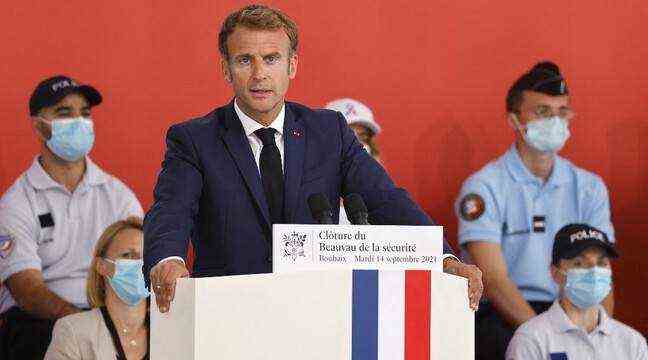At the conclusion of the “Beauvau de la sécurité”, this Tuesday, Emmanuel Macron announced the establishment of a “parliamentary control body of the police” in order to assess their actions.
Serving as an example and assumed model, the parliamentary intelligence delegation is made up of eight members of parliament, four deputies and four senators respectively. Some members are statutory, the committee chairmen, and others are appointed by the chairmen of the assemblies. The work is taking place behind closed doors.
“The major point is that all the political forces in Parliament are represented. Today, the majority in the National Assembly is not a majority in the delegation: we have two positions out of eight. It is a transpartisan delegation ”, indicates the deputy La République en Marche Yaël Braun-Pivet, member of the said delegation. A transpartisan character enhanced by the fact that decisions are always taken unanimously. “It is a place of overcoming political divisions”, summarizes the elected.
Everything remains to be defined and delimited
The parliamentary intelligence delegation makes a report every year which makes a number of recommendations to the government. “We control the action of the State, not the individual cases”, notes Yael Braun-Pivet. It is difficult to know how far the mimicry of the parliamentary delegation of the police will push. For example, the parliamentary intelligence delegation is bound by defense secrecy, which will not necessarily be the case for the new delegation.
In reality, it will be up to the Senate and the National Assembly to set the limits and possibilities of this new delegation. “The Parliament will define the extent and the modalities of its control by the law. The President of the Republic has set the direction for us, it is up to us to specify very concretely what this delegation can and cannot do, ”explains the deputy.
Obvious limits?
But it is these limits that have already been denounced. Concretely, it is impossible for the president to make it a permanent commission, since the number of the latter is capped by the Constitution, and this number has already been reached. The whole question, for Floran Vadillo, intelligence specialist and former adviser to Jean-Jacques Urvoas at the National Assembly and then at the Ministry of Justice, will be to give the delegation as many powers as a standing committee, and in particular: ” A full and complete power of hearing, without any restriction; a power of investigation on documents and on the spot; and access to all the internal documentation of the Ministry of the Interior, ”quotes the political scientist. He concedes: “It is both asking a lot and at the same time the minimum if we want sufficient power for this delegation. “
There remains for him a second pitfall: “It is customary for parliamentarians not to speak of acts giving rise to legal proceedings. However, with the increasingly important judicialization of police affairs, the scope of this delegation may be reduced, ”he deplores in advance.
The risk of a structure intended to “legitimize the actions of the government”
For him, this parliamentary delegation is more a tactical coup by Emmanuel Macron than anything else. “The risk is to have an organization intended only to legitimize the actions of the government. In four years of Emmanuel Macron’s presidency, Parliament has not distinguished itself once from the executive on the issue of police violence ”.
For Floran Vadillo, we must be inspired by the Belgian example. In 1991, the flat country created a police control delegation, “a sort of police Cnil”, independent of parliament. “As long as such an organization does not exist in France, the control of the daily activity of the police remains a blind spot”, concludes Floran Vadillo.

